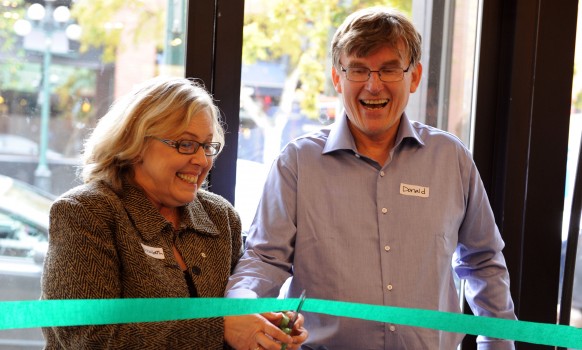By-elections can be meaningful events or routine affairs, foreshadow major change, or be of little consequence. In 2007, Thomas Mulcair won a seat that had been Liberal for decades, Outremont, in a by-election. It was a first sign of what became the orange wave in 2011, carrying 59 NDP members to victory. More often, by-election fights are quickly forgotten, except by the combatants.
Monday night, all eyes were turned towards Calgary Centre where the Conservative candidate Joan Crockatt looked to be vulnerable, with both the Green party, and the Liberals, fielding candidates capable of engineering an upset. It was not to be; though it was a competitive race, in a riding the Conservatives had won easily for years. Crockatt won by five percentage points over the Liberal (37 per cent to 32 per cent), despite predictions she was in trouble. Her statement that Radio-Canada was running a porn channel on the web had seasoned political observers trying to figure out what she could have been talking about. Her response to questions about the subject was “just research it on Google ….”
Local candidates matter in by-elections. In general elections, the party leaders command the stage, with local candidates drawing less attention than leadership personalities, and policies.
Crockatt is the former managing editor of the Calgary Herald, and a Big Oil advocate. She supports the Wildrose Party provincially, and not the ruling Progressive Conservatives, which puts her onside with her Conservative colleagues to be in Ottawa, and offside with a good wack of Alberta public opinion.
Though it fell short at the polls, Wildrose represented the first serious threat to the Alberta PCs since Peter Lougheed led the party to power in 1971. As a Wildrose supporter Crockatt divided Conservative voters. Her weak victory does not mean the Harper Conservatives are in trouble in Calgary — at least so long as they run against three opponents.
Victoria featured four strong candidates, but only three were considered competitive. At the outset, observers assumed Murray Rankin of the NDP would slide into the seat previously held by popular New Democrat Denise Savoie, a former deputy speaker of the House of Commons. And Rankin did register a narrow win over the Green candidate, Donald Galloway, apparently. It was an up and down evening, with the lead shifting back and forth between Galloway and Rankin.
In by-elections, local issues matter. The Greens pointed out the outcome is not going to lead to a change in government, so people should feel more free to vote their true preference.
What concerns voters directly also matters. In Victoria, a major controversy simmers over a sewage treatment project, being financed and supported by the federal Conservatives, but which asked locals to pay a property tax increase. Rankin spoke of the need for the project which was opposed by the Green candidate and the local CPC candidate, the other main contenders.
Liberal Paul Summerville, a one-time star NDP candidate in the Toronto riding of St. Paul’s was not a threat to win Victoria, despite his impressive credentials as a former Chief Economist at the Royal Bank, his extensive Asian experience and fluency in Japanese, and the fact the riding was Liberal before Denise Savoie won it for the NDP.
The Durham riding, north of Toronto, is notable as the home of the Darlington Nuclear reactor, and as the seat won by a large margin by the well known Conservative connoisseur of $16-a-glass orange juice, Bev Oda. Conservative Erin O’Toole, a military veteran, and son of the local Conservative provincial member, won handily.
This easy victory is an important sign for those who think that in the projected October 2015 general election the fate of the Conservative majority government will be decided in Ontario. Bluntly put, the Durham result is bad news for the Liberals, for the NDP, and those who want to see the last of a Harper government. While the NDP increased its share of the vote from 21 percent to 26 percent, the Conservatives showed they could win 50 per cent of the vote in an incumbent Ontario riding. Under re-distribution, Ontario gets 18 additional seats — sigh.
Green party supporters had reason to smile. In Calgary, the NDP were not in contention while the Greens challenged the two leading candidates. In Victoria the Greens turned the contest into a two party race.
Earlier on by-election day, Vancouver Quadra MP Joyce Murray announced her candidacy for the Liberal leadership. She supports discussing co-operation among Greens, Liberals and the NDP in order to defeat the Conservatives.
Given the by-election results, Murray’s view is going to resonate among some voters in Conservative ridings, just as it did when Nathan Cullen raised the same question during the NDP leadership race.
Duncan Cameron is the president of rabble.ca and writes a weekly column on politics and current affairs.
Photo: VictoriaWave.ca




